To build greater awareness of their value to the nation, the Key of Excellence Awards recognize innovative efforts to engage communities with the arts and sciences.
Programs awarded The Phi Beta Kappa’s Key of Excellence will receive a $10,000 cash prize and special recognition at a local event designed to bring together policymakers, business leaders, and Phi Beta Kappa members in support of the arts and sciences.
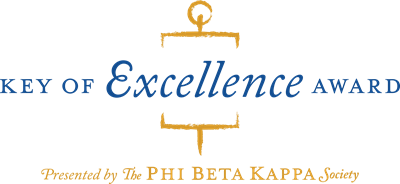
Selection Criteria
Recipients must demonstrate a strong record of success in engaging the public through multiple disciplines in both the arts and sciences. Their work should also make highly visible the excellence, range, and relevance of the arts and sciences through public programming and community outreach that seek to:  Involve and engage diverse constituencies
Involve and engage diverse constituencies  Improve the availability of and access to the arts and sciences locally
Improve the availability of and access to the arts and sciences locally  Identify community beneficiaries who can explain the impact of programs and outreach
Identify community beneficiaries who can explain the impact of programs and outreach
To encourage communities of all sizes to consider replicating successful efforts, special consideration may be given to geographic diversity, community scale, and organizational structure (nonprofits, state councils, programs at private and public colleges and universities, etc.).
Nomination Process
The Phi Beta Kappa Society will conduct its own due diligence to identify appropriate recipients. Interested parties, however, may nominate an organization for consideration by completing a brief form. Nominations for this award will be accepted on a rolling basis.
Key of Excellence Recipients
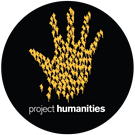 Project Humanities is a leader in local and national conversations about the breadth, depth, and value of the humanities across disciplines. Initiatives, such as The Encoded Textile Project, Humanity 101 Series, Science Café, Vital Voices, Poesia del Sol, Black Women Walking, and Top 10 Questions the Humanities Will Answer this Year, successfully blend academic research, community outreach, student development, and interdisciplinary approaches in compelling frameworks created by and enjoyed throughout the community.
Project Humanities is a leader in local and national conversations about the breadth, depth, and value of the humanities across disciplines. Initiatives, such as The Encoded Textile Project, Humanity 101 Series, Science Café, Vital Voices, Poesia del Sol, Black Women Walking, and Top 10 Questions the Humanities Will Answer this Year, successfully blend academic research, community outreach, student development, and interdisciplinary approaches in compelling frameworks created by and enjoyed throughout the community.
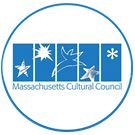 The Massachusetts Cultural Council provides youth and other vulnerable populations with in-deoth experiences and programs that demonstrate how the arts, sciences, and humanities build healthier, more livable and vital communities across Massachusetts. It increases the pool of financial resources — public and private — available for the arts, humanities, and sciences across the Commonwealth yielding increased public access for residents and strong economic returns for communities.
The Massachusetts Cultural Council provides youth and other vulnerable populations with in-deoth experiences and programs that demonstrate how the arts, sciences, and humanities build healthier, more livable and vital communities across Massachusetts. It increases the pool of financial resources — public and private — available for the arts, humanities, and sciences across the Commonwealth yielding increased public access for residents and strong economic returns for communities.
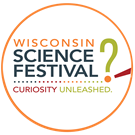 The Wisconsin Science Festival blends science with the arts and humanities to cultivate curiosity, inspire discovery, and grow knowledge among citizens of all ages and backgrounds in communities across Wisconsin. In 2014, 31,000 people in 20 cities across Wisconsin participated in more than 100 interactive exhibits, workshops, and conversations with leading researchers from the University of Wisconsin-Madison and its partner organizations.
The Wisconsin Science Festival blends science with the arts and humanities to cultivate curiosity, inspire discovery, and grow knowledge among citizens of all ages and backgrounds in communities across Wisconsin. In 2014, 31,000 people in 20 cities across Wisconsin participated in more than 100 interactive exhibits, workshops, and conversations with leading researchers from the University of Wisconsin-Madison and its partner organizations.
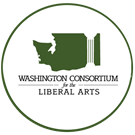 The Washington Consortium for the Liberal Arts brings together what many might see as unlikely allies to create positive change in the public dialogue about the liberal arts and sciences in communities throughout the state of Washington. This robust network actively promoting the value of a liberal arts education to the people and communities of Washington includes: state public and private two- and four-year education institutions; arts, humanity, science, and technical organizations; and committed individuals.
The Washington Consortium for the Liberal Arts brings together what many might see as unlikely allies to create positive change in the public dialogue about the liberal arts and sciences in communities throughout the state of Washington. This robust network actively promoting the value of a liberal arts education to the people and communities of Washington includes: state public and private two- and four-year education institutions; arts, humanity, science, and technical organizations; and committed individuals. 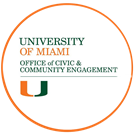 Harnessing the University of Miami’s diverse academic resources, its connections to the region, and its spirit of innovation, the Office of Civic and Community Engagement seeks to help solve complex social problems in South Florida—and prepare students to make significant contributions to community well-being. Its UM Civic Scholars, Civic Engagement High School Partnership, Engaged Faculty Fellows, and the Imagining America Research Collaborative on Civic Professionalism initiatives demonstrate a cross-campus commitment to advancing the civic purposes of higher education.
Harnessing the University of Miami’s diverse academic resources, its connections to the region, and its spirit of innovation, the Office of Civic and Community Engagement seeks to help solve complex social problems in South Florida—and prepare students to make significant contributions to community well-being. Its UM Civic Scholars, Civic Engagement High School Partnership, Engaged Faculty Fellows, and the Imagining America Research Collaborative on Civic Professionalism initiatives demonstrate a cross-campus commitment to advancing the civic purposes of higher education.
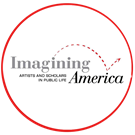 Animating the civic purpose of the humanities, arts, and design through campus-community partnerships, Imagining America weaves the strengths of the arts and sciences together with the practical work of sustaining our communities and ourselves. Major initiatives, such as Undergraduate Civic Professionalism, Engaged Scholars, Performing Our Future, Civic Science, Tenure Team Initiative on Public Scholarship and the journal Public, promote positive social change in communities while also rigorously researching the role of civic engagement in liberal arts and sciences education.
Animating the civic purpose of the humanities, arts, and design through campus-community partnerships, Imagining America weaves the strengths of the arts and sciences together with the practical work of sustaining our communities and ourselves. Major initiatives, such as Undergraduate Civic Professionalism, Engaged Scholars, Performing Our Future, Civic Science, Tenure Team Initiative on Public Scholarship and the journal Public, promote positive social change in communities while also rigorously researching the role of civic engagement in liberal arts and sciences education.
